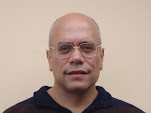Paper Lace
Grupo inglés formado en 1967 con el nombre de "Music Box" que luego cambió en 1969 por el de "Paper Lace". Estaba formado por Cliff Fish (Derbyshire, 1949), Mick Vaughan (Sheffield, 1950), Chris Morris (Nottingham, 1954) y Phil Wright (Nottingham, 1948)
Grupo inglés formado en 1967 con el nombre de "Music Box" que luego cambió en 1969 por el de "Paper Lace". Estaba formado por Cliff Fish (Derbyshire, 1949), Mick Vaughan (Sheffield, 1950), Chris Morris (Nottingham, 1954) y Phil Wright (Nottingham, 1948)
THE NIGHT
CHICAGO DIED
Daddy was a
cop on the east side of Chicago
back in the
USA, back in the bad old days.
In the heat
of a summer night,
in the land
of the dollar bill.
When the
town of Chicago died
and they
talk about it still.
When a man
named Al Capone
tried to
make that town his own
and he
called his gang to war
with the
forces of the law.
I heard my
momma cry,
I heard her
pray the night Chicago died!
Brother,
what a night it really was!
Brother,
what a fight it really was!
Glory be!
I heard my
momma cry,
I heard her
pray the night Chicago died!
Brother,
what a night the people saw!
Brother,
what a fight the people saw!
Yes, indeed.
And the
sound of the battle rang
through the
streets of the old East Side.
Till the
last of the hoodlum gang
had
surrendered up or died.
There was
shouting in the street
and the
sound of running feet
and I asked
someone who said
"'Bout
a hundred cops are dead".
I heard my
momma cry,
I heard her
pray the night Chicago died!
Brother,
what a night it really was!
Brother,
what a fight it really was!
Glory be!
El subfusil Thompson fue el arma favorita de los gánsters en los años 20
I heard my
momma cry,
I heard her
pray the night Chicago died!
Brother,
what a night the people saw!
Brother,
what a fight the people saw!
Yes, indeed.
Then there
was no sound at all,
but the
clock upon the wall.
Then the
door burst open wide
and my
daddy stepped inside
and he
kissed my momma's face
and he
brushed her tears away.
The night
Chicago died.
Brother,
what a night the people saw!
Brother,
what a fight the people saw!
Yes, indeed.
The night
Chicago died.
Brother,
what a night it really was!
Brother,
what a fight it really was!
Glory be!
The night
Chicago died
Brother,
what a night the people saw!
(Canción compuesta por Mitch Murray y Peter Callander e
interpretada por el grupo británico “Paper Lace” en el álbum titulado “Another bits of material”
que se publicó en 1974)
La exitosa canción se incluyó en este álbum
LA MATANZA
DE
SAN VALENTÍN
Papá era un policía en la zona este de Chicago,
aquí en los Estados Unidos de América,
en los viejos tiempos de hace muchos años.
En medio del tórrido calor de una noche de verano,
en la tierra de las cuentas que se pagan con dólares,
sucedió que todo Chicago sufrió un descalabro
que todavía se comenta a día de hoy.
Pasó que un gánster llamado Al Capone
intentó apropiarse de la ciudad para él,
por lo que puso a su banda en guerra
contra las mismísimas fuerzas de la ley.
Esa noche yo oí a mi madre llorar
y pasarse las horas rezando
por si a mi padre lo podrían matar.
Hermano, ¡qué noche horrible fue aquélla!
Compañero, ¡en qué tiroteo se enzarzaron!
¡Bendita sea la gloria de Dios en el cielo!
Escuché llorar a mamá sin consolación,
no paraba de rezarle al Señor.
¡Qué irrepetible noche vivió la gente!
¡A qué fiera lucha armada asistió!
Sí, fue así como sucedió.
Al Capone
(Alphonse Gabriel Capone)
"Scarface" ("Caracortada")
(Brooklyn, Nueva York, 1899 - Miami, Florida, 1947)
Asesino condenado por evasión fiscal y no por sus crímenes
Cuando el sonido de las ráfagas
de ametralladora cruzó las calles
del barrio, hasta el último matón
de Al Capone cayó o se entregó.
Hubo gritos despavoridos en todas partes
y ruido de pisadas huyendo.
Le pregunté a un tipo que pasaba por allí
desde la ventana y me dijo que unos cien
policías habían muerto por los disparos.
De pronto se hizo tal silencio en casa
que sólo se oía el péndulo del reloj.
Por sorpresa la puerta se abrió
y vimos a papá entrar al salón
besando a mi madre y secándole las lágrimas.
Todo eso ocurrió la noche
en la que Chicago murió.
(Traducción d Andrés González Déniz)
Este disco fue el mayor éxito de esta banda de pop-rock









No hay comentarios:
Publicar un comentario